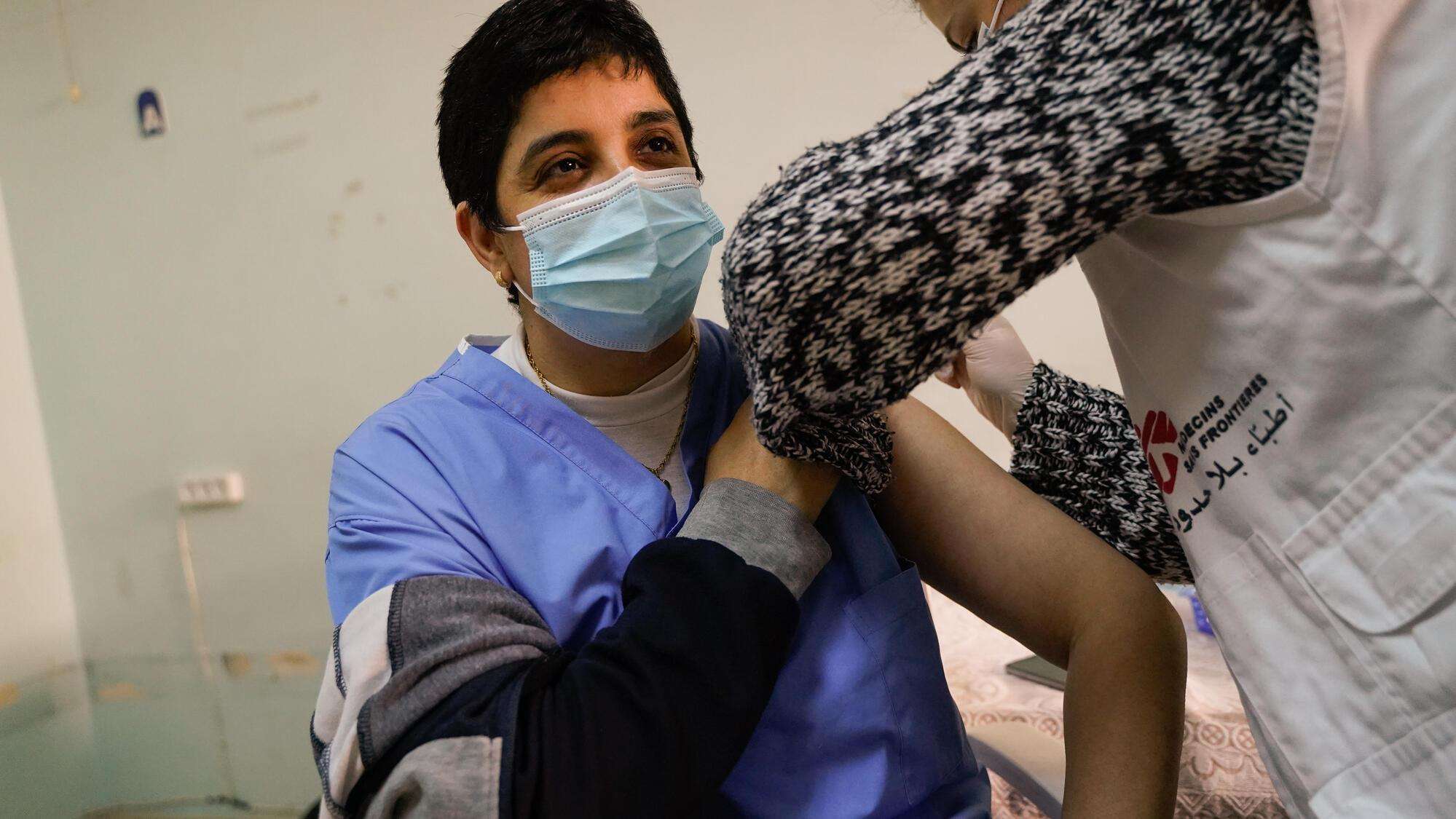On April 14, 2021, Dr. Maria Guevara, international medical secretary for Doctors Without Borders/Médecins Sans Frontières (MSF), delivered this intervention at a virtual event hosted by the World Trade Organization on "COVID-19 and Vaccine Equity: What Can the WTO Contribute?" The event was chaired by Dr. Ngozi Okonjo-Iweala, director-general of the WTO.
Dr. Ngozi, Excellencies, and distinguished guests, thank you for this opportunity to speak and be part of this important meeting today.
We also wish to congratulate Dr. Ngozi on your appointment as director-general of the WTO and welcome your inspiring leadership.
MSF has been responding to the COVID-19 pandemic since January 2020. In many places where MSF works, we see firsthand the continuing global inequities in access to COVID-19 tools and vaccines. The reality on the ground is that the world is far from ensuring that all frontline health care workers and vulnerable groups across the world are vaccinated.
Despite the unprecedented speed of vaccine development and initial scale-up of manufacturing capacity, we are facing a scarcity issue in the here and now. We are witnessing inevitable manufacturing constraints, compounded by the fact that some countries have secured many more doses than is needed to vaccinate their whole populations through bilateral deals.
During this time of scarcity, we have to urgently address the immediate inequities in access to COVID-19 vaccines. Collectively, we have to ensure all frontline healthcare workers and high-risk groups across the world are prioritized to access vaccines.
In parallel, with this pandemic being far from over, we need to urgently address the scarcity issue itself.
To meet the unprecedented global demands, this requires solutions to alleviate immediate supply limitations as well as immediate action to create enabling conditions for mid- and longer-term solutions to ensure manufacturing and supply capacity is not only increased but diversified. We must enable and develop local capacities across the world to independently contribute to a more sustainable global supply system, particularly in low- and middle-income countries. The current geographically concentrated and pharmaceutical industry-controlled global production and supply system is simply not adequate to respond to this pandemic.
Global supply should not be dependent on the purely commercial prerogatives and exclusive rights of pharmaceutical companies holding the technology. MSF, along with many other civil society organizations, have called for the main vaccine developers to openly share their IP [intellectual property] and transfer know-how and technology. But so far this has not been sufficient.
A reminder again, the pharmaceutical industry continues to reject the WHO-led initiative, the COVID-19-Technology Access Pool (C-TAP), as a means to do so. Relying solely on companies’ current voluntary measures has inherent limitations and has shown to not adequately address the overwhelming challenges of this pandemic.
Any voluntary mechanism must have enforceable measures to ensure worldwide coverage for supply, full transparency, clear accountability, and non-exclusive terms.
In regard to WTO, temporarily waiving relevant intellectual property that reinforces monopolies is an important contribution that the WTO as a rules-based, multilateral institution can make to support this pandemic response. MSF joins others in urging all governments to support the call for a TRIPS waiver and begin formal negotiations without delay.
Certainly, the waiver alone cannot solve all problems we face in this pandemic, but it is an important legal option and urgent step to take amongst other measures that should be available for governments to use.
Countries need to have new legal options to address legal uncertainties and barriers that may impede production and supply of medical products in advance, as we brace for future challenges. Preparedness and speed are key in effective emergency response.
Finally, we appeal to all WTO members to work together for a global solution that empowers all countries to protect all populations, and truly treat vaccines as a global public good. It is about saving lives in the end, not protecting systems.
Thank you.




